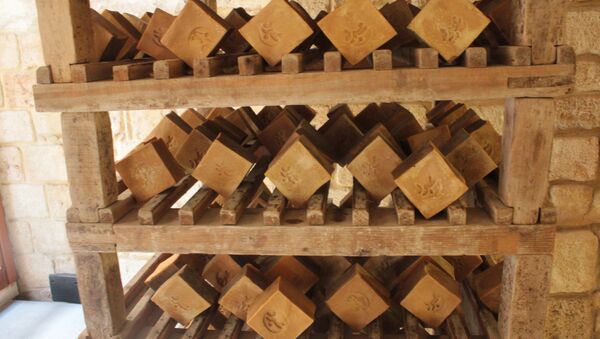Inside the museum, visitors can take a closer look at the ancient equipment used for creating handmade soap: stone vats for the preparation of soap solution, a platform for the formation and drying of layers and tools for cutting them into separate blocks. Among the showcased items, there are antique utensils exhibited in glass cases that were in use in centuries past.
In addition, museum guests can watch a video about the history of the development of soap-making in Lebanon. To share all the details of this craft with the public, the museum employs guides of various professions.
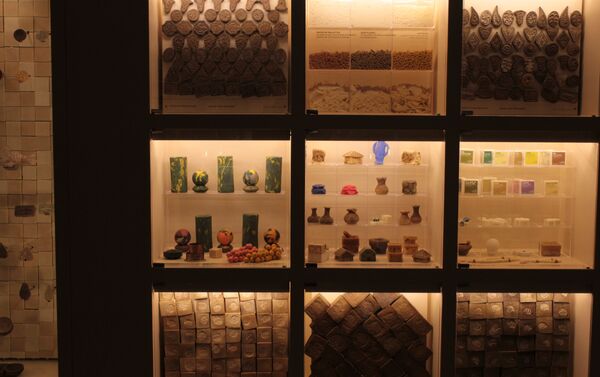
1/4
© Sputnik / Zahraa Al-Amir
Museum of soap making
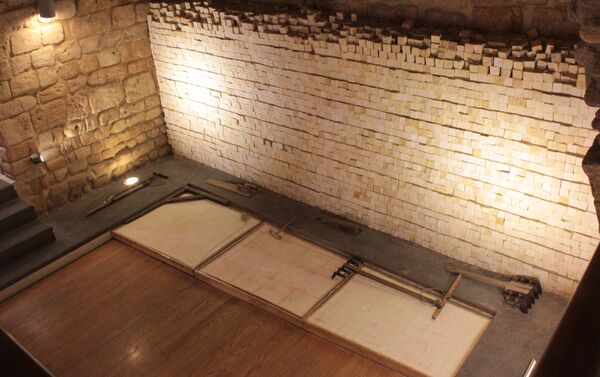
2/4
© Sputnik / Zahraa Al-Amir
Museum of soap making
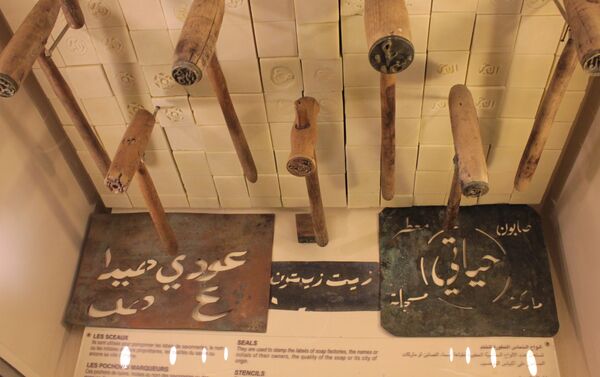
3/4
© Sputnik / Zahraa Al-Amir
Museum of soap making
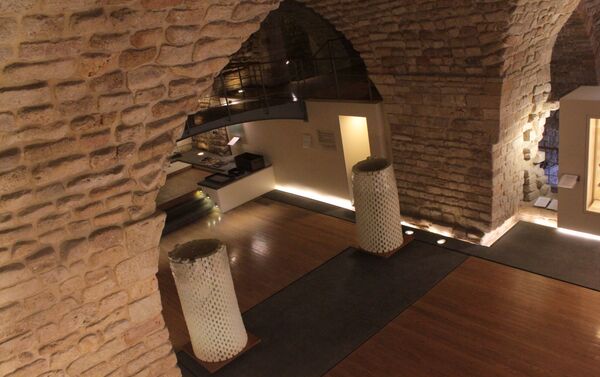
4/4
© Sputnik / Zahraa Al-Amir
Museum of soap making
1/4
© Sputnik / Zahraa Al-Amir
Museum of soap making
2/4
© Sputnik / Zahraa Al-Amir
Museum of soap making
3/4
© Sputnik / Zahraa Al-Amir
Museum of soap making
4/4
© Sputnik / Zahraa Al-Amir
Museum of soap making
"Our museum tells people about the benefits of natural soap that does not harm the skin," museum guide Zakrawi Shakir told Sputnik.
"The art of soap-making is part of the cultural heritage of Lebanon. Every year tens of thousands of tourists come here to learn about one of Lebanon's most ancient crafts and to buy the best high quality natural soap in Lebanon and the entire region," he added.
Indeed, there is a shop at the entrance to the museum, where one can buy handmade soap for reasonable prices, starting from $1 per bar. The most expensive soap here costs $20; a large block of this soap is perfumed and is used for aromatizing and decorating rooms.

